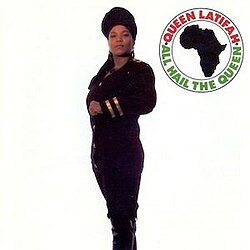Rod Stewart’s One Last Time: The Legacy Tour That’s Captivating North America in 2025
Rod Stewart is back— and how! The legendary British rocker is currently taking North America by storm with his much-anticipated 2025 "One Last Time" Legacy Tour, thrilling fans from coast to coast with electrifying performances and a nostalgic setlist that spans his decades-long career. Marked as his final large-scale concert series in the region, this tour is not just a goodbye; it’s a full-on celebration of an icon’s enduring legacy in rock and pop.
Since kicking off in June, Rod Stewart’s One Last Time tour has been selling out major arenas across the United States and Canada, cementing its status as one of the hottest live music experiences of the year. For fans who grew up swaying to hits like “Maggie May,” “Do Ya Think I’m Sexy?,” and “Tonight’s The Night,” this is the ultimate last chance to experience the raspy voice and magnetic stage presence of Rod in person. But even younger audiences are flocking to see a rock legend in his prime as he delivers raw, heartfelt performances night after night.
Why “One Last Time” Is More Than Just a Tour
There’s a lot of buzz around the “One Last Time” tour beyond the superstar setlist. Fans and critics alike are calling it a historic moment — a celebration of Rod Stewart’s career that spans over 50 years and countless chart-topping hits. "One Last Time" isn’t just about nostalgia; it’s about honoring the journey of a true rock 'n' roll pioneer who helped shape the sound of modern music.
Stewart’s charismatic storytelling between songs adds layers of intimacy and reflection to his concerts. He shares candid moments from his life and career, making the audience feel like they’re part of an exclusive, heartfelt farewell. Many fans have described the experience as “bittersweet,” as they enjoy one final musical voyage with the artist who defined a generation, all while acknowledging the emotional weight of potentially never hearing him live again.
The Setlist That Mirrors Decades of Hits
The "One Last Time" setlist is a carefully crafted trip down memory lane. Rod blends his iconic rock anthems with soulful ballads, showing off why his voice has remained so distinct and captivating through the years. Highlights include crowd favorites like “The First Cut Is the Deepest” and “Forever Young,” giving fans that energizing concert vibe intertwined with moments of quiet reflection.
Interestingly, the tour has also seen Rod mixing in rare deeper cuts and surprises that longtime fans appreciate, keeping each night unique and exciting. The synergy between his band and audience is palpable, reminding everyone why Rod Stewart is still one of the most resilient and beloved figures in the music industry.
The Impact on Fans and The Music Industry
The One Last Time tour has reignited conversations not only about Rod Stewart’s timeless talent but also about the special place veteran artists hold in today’s music scene. In an era dominated by digital hits and viral sensations, Stewart’s live tour is proof that concert experiences remain a treasured tradition for music lovers of all ages.
For many attendees, witnessing “One Last Time” is an emotional experience that goes beyond entertainment. It’s a communal moment of joy, nostalgia, and admiration for an artist who has influenced countless musicians and touched millions of lives worldwide. Social media is buzzing with fan reactions, from touching stories of generational concert trips to viral clips capturing Rod’s electric energy on stage.
A Tour That’s Setting Trends
Rod Stewart’s One Last Time tour is hitting all the right notes in 2025—not only musically but fashion-wise. Known for his signature rock star look, Stewart’s stylish stage outfits are trending on social platforms, inspiring throwback fashion vibes among fans. Collaborations with modern designers and nostalgic merchandising have amplified the tour’s cultural footprint, making it a must-follow event for fans and style enthusiasts alike.
Plus, the tour’s innovative concert production and lighting have been praised for complementing the raw talent without overshadowing it, maintaining a perfect balance of glam and authenticity that resonates with today’s concertgoers.
Looking Ahead: What’s Next for Rod Stewart?
While the One Last Time tour marks the end of Rod Stewart’s large-scale live performances in North America, the superstar is far from quiet. Rumors hint at potential new music projects, smaller intimate gigs, and continued involvement in philanthropic endeavors. Fans can rest easy knowing that this may be the last major tour, but the legacy and influence of Rod Stewart will continue to ripple through the music world for years to come.
Don’t Miss Out
If you haven’t experienced the magic of Rod Stewart’s One Last Time Legacy Tour yet, tickets for remaining dates are selling fast. Whether you’re a longtime fan or new to his music, this is a once-in-a-lifetime chance to witness a true music legend delivering an unforgettable final encore in North America.
Get ready to sing along, dance, and celebrate the extraordinary career of Rod Stewart—one last time.
By koalafriend
For more updates on Rod Stewart’s tour and exclusive insider coverage, stay tuned.


